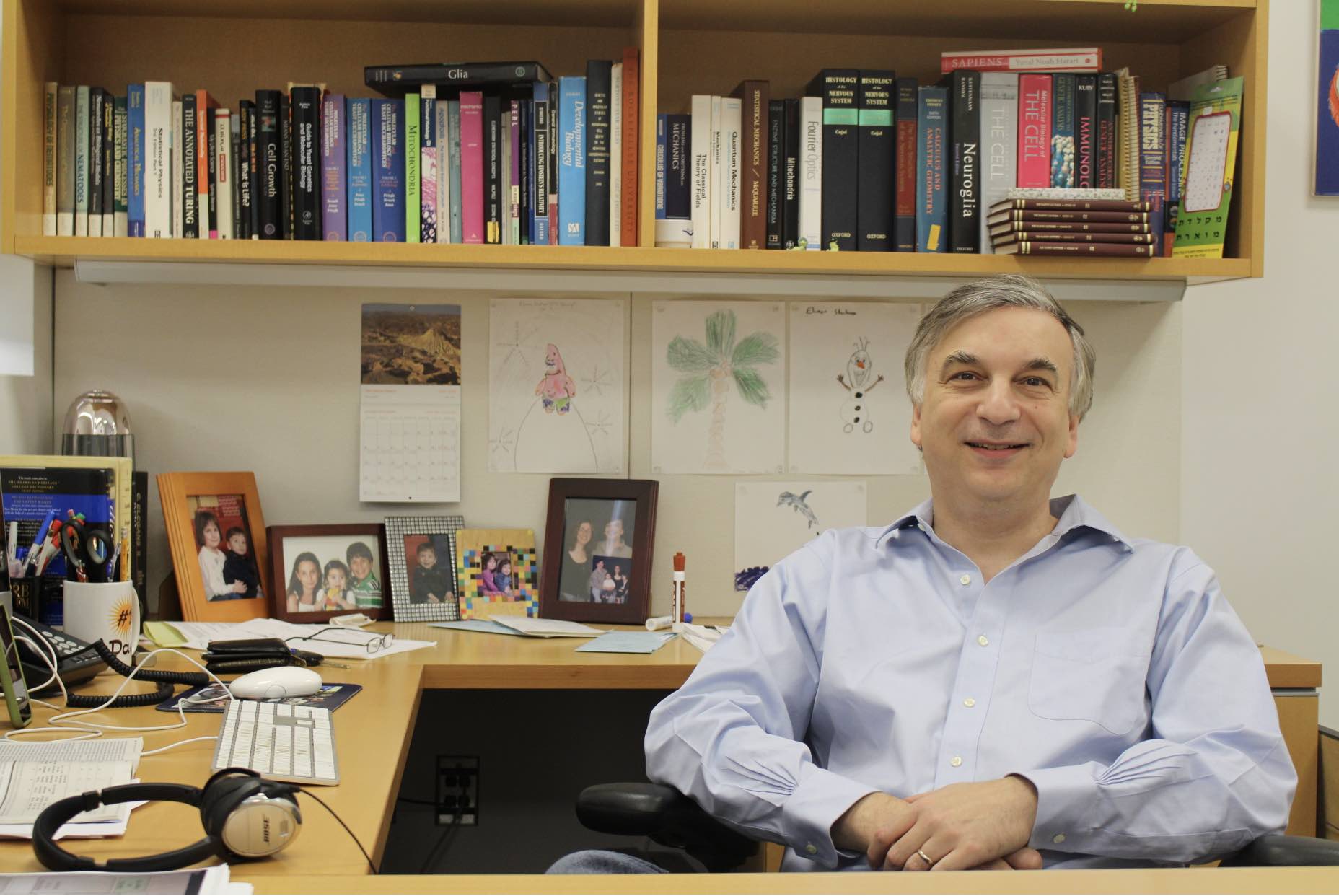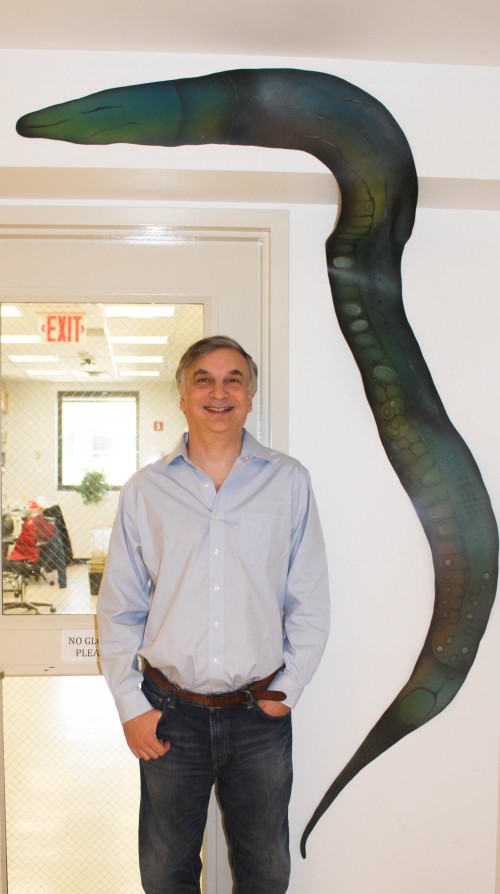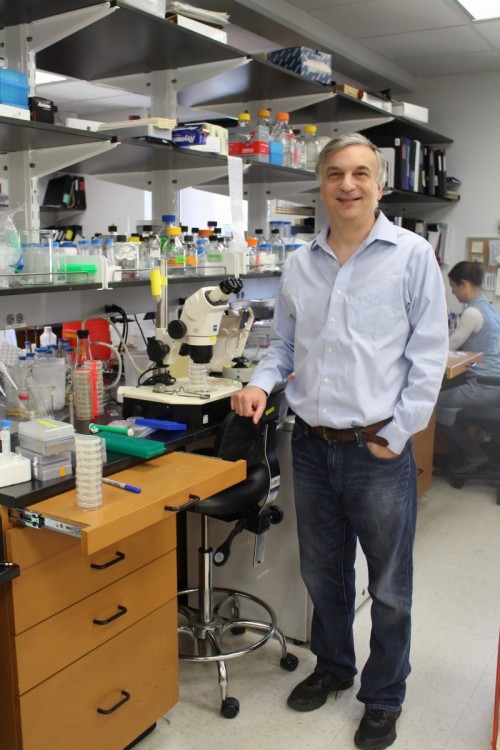Shai Shaham
Dr. Shai Shaham grew up in Israel and took an early interest in music. He often attended student concerts at the local conservatory with his siblings.

Steven Lewis sat down with Dr. Shai Shaham, head of the Laboratory of Developmental Genetics at Rockefeller University, to discuss how growing up surrounded by both science and music has shaped Dr. Shaham’s perspective on creativity. Research in the Shaham lab uses the roundworm, Caenorhabditis elegans, to study both programmed cell death during animal development and the roles of glial cells in nervous system development and function.
What attracted you to science and who have been your biggest influences?
“The biggest influence for me going into science was probably my dad, who was an astrophysicist. Growing up, I heard about the science of celestial bodies and was always fascinated by it. I started out pretty sure I would become an astronomer or physicist.”

Shai Shaham outside his laboratory with one of two C. elegans created by Coco 144
Your sister and brother, Orli and Gil Shaham, are professional musicians and I understand you play and perform as well. What was it like growing up in such a musical household?
“My parents were both musical. My mom is a human cytogeneticist and my dad was an astrophysicist and . . . I remember, growing up, they would play Beethoven sonatas together. So music was always around. Then when I was 4, I started playing the piano but didn’t quite put the time into that . . . For me, getting hooked took a bit longer and occurred when we moved to the US in my teens. In Israel, I had a very opinionated piano teacher. She cared little for my interests, and I didn’t quite enjoy that. By contrast, my teacher in the US gave me an enormous amount of freedom. I loved listening to Brahms and she suddenly said, ‘why don’t you play Brahms’ and that really ignited a fire in me and got me more involved in music.”
When I hear you speak about music, I can tell you have a deep passion for it, and I’m sure it’s the same for science. I’d love to hear your thoughts on the creativity of science, possibly connections for you between music and science and if your musical passion ever informs your science.
“I don’t know that music directly informs my science, but in science, the way to put together a story is to start with an observation and use that kernel to expand and grow the original idea. You do follow up experiments and test different conditions. I think music is very much similar in that way. Music is usually built on small ideas, a small kernel, and the task is to develop an entire piece based on that little idea . . . “
In both music and science, it is very difficult to build a convincing structure from your ideas. There are a lot of things that can go wrong when you try to put a story together, starting with your seed idea being wrong.
What role do you think scientists have to play outside of their field, whether it be the arts, politics, philosophy, writing? There are some interesting examples of this like Lewis Thomas, who wrote about science and I know you have performed before with your sister, who is a pianist.
“My general thoughts are that if you are really good at one thing, it . . . often precludes being good at anything else. This is a famous Platonic concept: one man, one job. So, I don’t feel comfortable when somebody in one field gives advice about another field . . . I think the expectation that excellence in one endeavor means competency in another is often wrong . . .That being said, with general principles like we’ve been discussing, useful concepts that transcend fields do exist. Methodologies for pursuing a problem, defining criteria for evaluating success of a project, or lack of success. General ways of thinking about things- that can be very useful and productive . . .”
What are the most rewarding aspects of day-to-day running a lab?
“. . . I love seeing how a construct of my mind, that exists nowhere in the physical universe, becomes something physical, or real. I think that is amazing. That actually is also true of music. When you think about composers and all that is going on in their minds when they then give the music to musicians they can finally hear it. It’s wild. That something in the confined space of our mind can have a form outside that space. I also love to see how people in the lab come in uninitiated and leave the lab with a confidence and strength of character and confidence that they now know what they are doing . . .”

